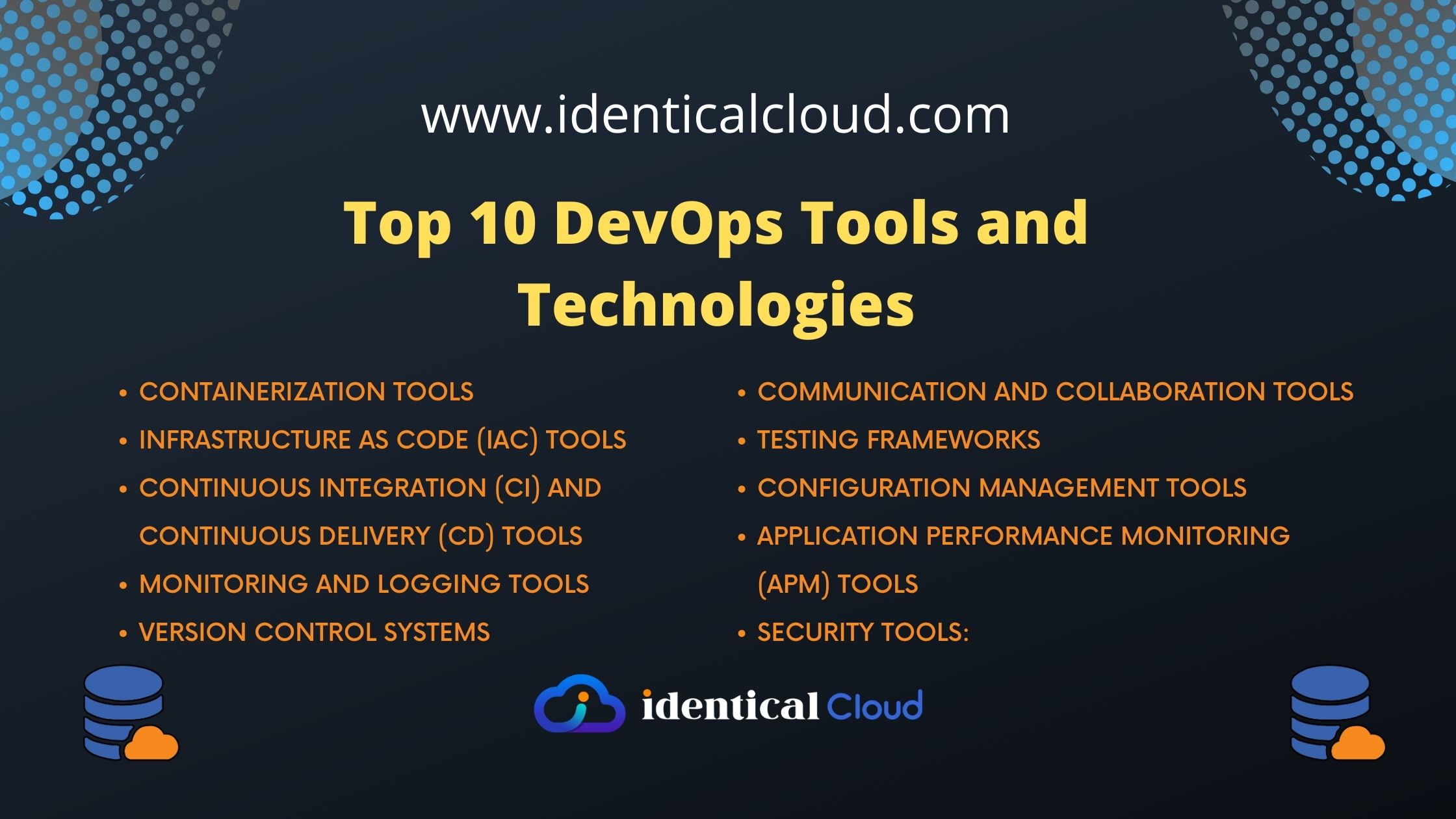Top devops Interview Questions and Answers
Top devops Interview Questions and Answers
DevOps is a set of practices that combines software development (Dev) and IT operations (Ops) to shorten the systems development life cycle and provide continuous delivery with high quality. DevOps engineers are responsible for automating the deployment and maintenance of applications and systems. They also work to improve communication and collaboration between Dev and Ops teams.
If you are interviewing for a DevOps position, it is important to be prepared for a variety of questions. Here are the top DevOps interview questions and answers:
What is DevOps?
DevOps is a set of practices that combines software development (Dev) and IT operations (Ops) to shorten the systems development life cycle and provide continuous delivery with high quality.
What are the benefits of DevOps?
The benefits of DevOps include:
- Increased speed and agility
- Improved quality
- Reduced costs
- Increased customer satisfaction
What are the challenges of DevOps?
The challenges of DevOps include:
- Cultural change
- Technical challenges
- Security challenges
- Compliance challenges
What are the tools and technologies used in DevOps?
The tools and technologies used in DevOps include:
- Version control systems (VCS)
- Continuous integration (CI)
- Continuous delivery (CD)
- Containerization
- Infrastructure as code (IaC)
- Monitoring and logging
What are the different stages of the DevOps pipeline?
The different stages of the DevOps pipeline include:
- Planning: This stage involves defining the requirements for the new or updated application or system.
- Development: This stage involves writing the code for the new or updated application or system.
- Testing: This stage involves testing the new or updated application or system to ensure that it meets the requirements.
- Deployment: This stage involves deploying the new or updated application or system to production.
- Monitoring: This stage involves monitoring the new or updated application or system to ensure that it is performing as expected.
What are the best practices for DevOps?
The best practices for DevOps include:
- Automating the deployment and maintenance of applications and systems.
- Improving communication and collaboration between Dev and Ops teams.
- Using version control systems to track changes to code.
- Using continuous integration and continuous delivery (CI/CD) to deploy changes to applications and systems frequently and reliably.
- Using containerization to package applications and their dependencies into isolated units.
- Using infrastructure as code (IaC) to define and manage infrastructure in code.
- Using monitoring and logging to track the performance of applications and systems.
What are the challenges of implementing DevOps?
The challenges of implementing DevOps include:
- Cultural change: DevOps requires a cultural change that breaks down the silos between Dev and Ops teams.
- Technical challenges: DevOps can be technically challenging, especially for organizations that are not already using agile development practices.
- Security challenges: DevOps can introduce new security risks, so it is important to have a strong security posture in place.
- Compliance challenges: DevOps can also introduce new compliance challenges, so it is important to be aware of the relevant regulations.
How can I prepare for a DevOps interview?
To prepare for a DevOps interview, you should:
- Learn about the different aspects of DevOps, including the tools and technologies used.
- Understand the benefits and challenges of DevOps.
- Be able to discuss your experience with DevOps, if any.
- Be able to answer questions about the DevOps pipeline and best practices.
- Practice your answers to common DevOps interview questions.
Explain the core principles of DevOps.
The core principles of DevOps include:
- Collaboration: Fostering teamwork between development and operations teams.
- Automation: Automating manual processes to improve efficiency and reduce errors.
- Continuous Integration (CI): Frequent integration of code changes into a shared repository.
- Continuous Deployment (CD): Automatically deploying code changes to production.
- Monitoring and Feedback: Continuous monitoring to gather feedback for improvement.
What is Continuous Integration (CI), and why is it important?
Continuous Integration is the practice of regularly merging code changes into a shared repository. It aims to detect and address integration issues early, allowing teams to catch bugs and conflicts before they impact the final product. CI fosters collaboration and ensures a consistent and reliable codebase.
How does Continuous Deployment (CD) differ from Continuous Delivery (CD)?
Continuous Delivery (CD) ensures that code changes are always in a deployable state. Continuous Deployment goes a step further by automatically deploying code changes to production once they pass automated tests and other quality checks.
What is Infrastructure as Code (IaC)?
Infrastructure as Code is a practice of managing and provisioning infrastructure using code and automation. IaC allows infrastructure to be versioned, tested, and deployed alongside application code, improving consistency and eliminating manual setup.
Explain the difference between Docker and virtualization.
Docker is a containerization platform that packages applications and their dependencies into containers. Containers are lightweight, isolated environments that run on a shared operating system, providing better resource utilization and portability compared to traditional virtual machines, which require a full OS for each instance.
What is Kubernetes, and why is it important in DevOps?
Kubernetes is an open-source container orchestration platform that automates the deployment, scaling, and management of containerized applications. It simplifies the deployment of complex applications across clusters of machines and ensures high availability and scalability.
What is a microservices architecture, and how does it relate to DevOps?
Microservices architecture involves breaking down applications into smaller, loosely coupled services that can be developed, deployed, and scaled independently. DevOps practices align well with microservices, as they allow teams to manage and deploy individual services while maintaining overall application functionality.
Explain Blue-Green Deployment.
Blue-Green Deployment is a deployment strategy where two identical environments, “Blue” (current) and “Green” (new), are maintained. The new version is deployed to the Green environment while the Blue environment serves production. Once the Green environment is tested and verified, traffic is switched from Blue to Green, minimizing downtime and risk.
How does DevOps promote a culture of collaboration?
DevOps promotes collaboration by breaking down silos between development, operations, and other teams. It encourages open communication, shared responsibility, and a focus on common goals. Collaboration tools, regular meetings, and cross-functional training contribute to building a collaborative culture.
These top DevOps interview questions provide a comprehensive overview of the skills and principles that are integral to the DevOps ecosystem. When preparing for your interview, focus on understanding the fundamental concepts, tools, and practices that enable seamless collaboration and efficient software delivery. Utilize these expert answers as a foundation to deepen your knowledge, enhance your problem-solving abilities, and build the confidence required to impress interviewers with your expertise in DevOps. Remember, a successful DevOps interview not only evaluates your technical skills but also your cultural fit within a collaborative and innovative DevOps environment.








